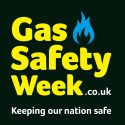The Gas Safety Guardians Calendar 2024
First of-its-kind calendar featuring real Gas Safe registered engineers
To mark this Gas Safety Week and the start of the ‘gas safety year’, Gas Safe Register launches the first ever calendar to feature Gas Safe registered engineers. The calendar showcases what makes each engineer unique, represents real voices from across the UK and demonstrates the breadth and diversity of Gas Safe registered engineers. Along with a range of gas safety tips to help inform and educate UK homeowners.
January
Francesca’s tip
Only use gas appliances for their intended purpose. Don’t use an appliance for something it wasn’t meant for – for example, using a gas cooker to heat a room.

February
Richard’s tip
Signs something could be wrong with your gas appliances include lazy yellow flames on or around the appliance, black marks or stains, increased condensation, or intermittent pilot lights. Similarly, if you can smell rotten eggs in your home, there could be a gas leak.

March
Kate’s tip
Always use an qualified and registered engineer. Ensure the engineer checking your gas appliances is Gas Safe registered by checking their ID card or visiting GasSafeRegister.co.uk.

April
Mayank’s tip
Set a (spring) reminder for peace of mind. Ensure your gas appliances (be it a gas boiler, cooker or fire) are serviced and safety checked every 12 months by a Gas Safe registered engineer. So you don’t forget, sign-up for Gas Safe Register’s free reminder service, with which you’ll receive an email or text when it’s time to get your appliances checked. Sign up at www.StayGasSafe.co.uk/Set-Reminder.

May
Bob and Sarah’s tip
Don’t do it yourself. If doing work to a home, don’t try to fit, fix or move gas appliances such as a boiler, oven or fire, yourself. Use a Gas Safe registered engineer by visiting GasSafeRegister.co.uk or call 0800 408 5500.
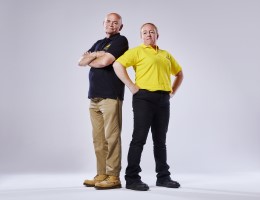
June
Lily’s tip
CO poisoning, know the signs. It’s worth being clued up on the main signs of carbon monoxide (CO) poisoning, which include headaches,
dizziness, breathlessness, nausea, collapse and loss of consciousness.
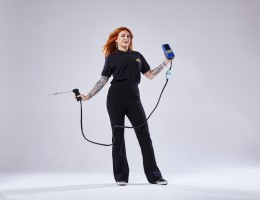
July
Connie’s tip
Always check. Before drilling, hammering or putting screws into a wall or
floor, check what’s behind it! You don’t want to accidentally hit and damage a gas pipe.
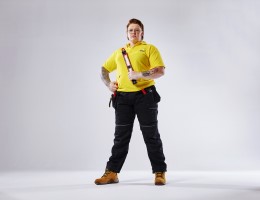
August
Elizabeth’s tip
Be prepared and think fast. Find out where your gas Emergency Control Valve (ECV) is located, so you can switch the gas supply off in an emergency.
And if you do think you can smell gas or have detected a potential gas leak, immediately open doors and windows, turn off the gas emergency control valve at the meter and call The National Gas Emergency Helpline on 0800 111 999.
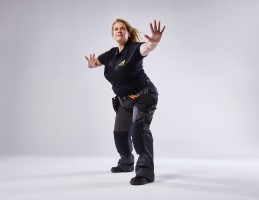
September
Barrie’s tip
Paperwork matters. September is a popular month for moving. Whether you are moving into a rental property or buying a new home, be sure to have sight of the latest paperwork concerning the maintenance (gas safety checks/records) and installation for their household’s gas appliances and gas pipework.

October
Mayank and Lily’s tip
Ventilation is vital. Don’t block or cover air vents and flues, even if they are nuisance during the winter months – your gas appliance will need ventilation and flues to work safely.

November
Patrik’s tip
Buy a carbon monoxide alarm. Fit an audible carbon monoxide alarm in each room where you have a gas appliance – this will alert you if there is a carbon monoxide leak in your home. Once fitted, test it regularly. Press and hold the Test Button on the front of the alarm until the alarm sounds.

December
Our last tip
Size matters. When cooking using a gas cooker, always make sure to use the correct size pots and pans for the hob burner to allow the correct amount of air to circulate around the hob flame, preventing incomplete fuel combustion and the production of carbon monoxide.

